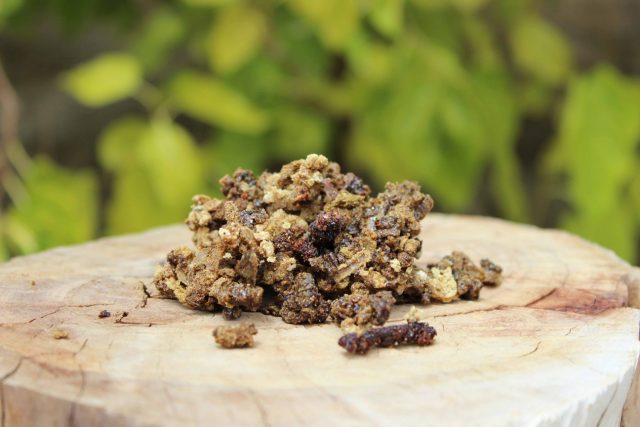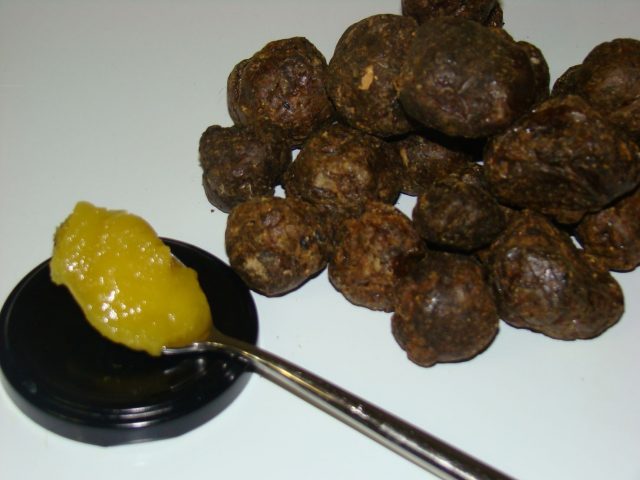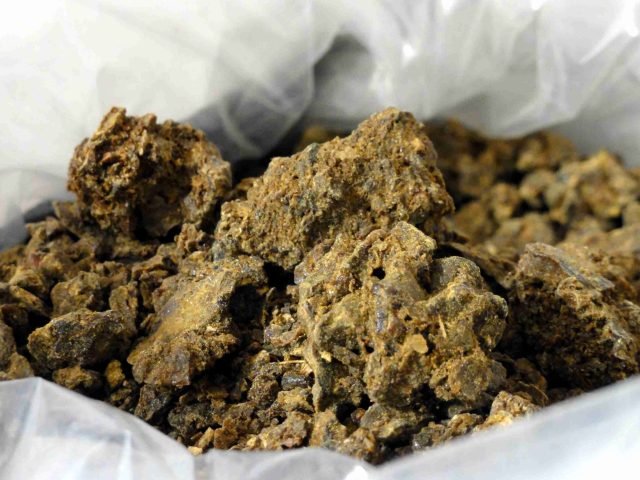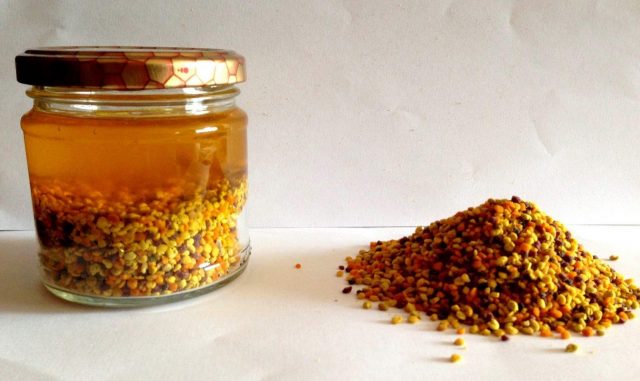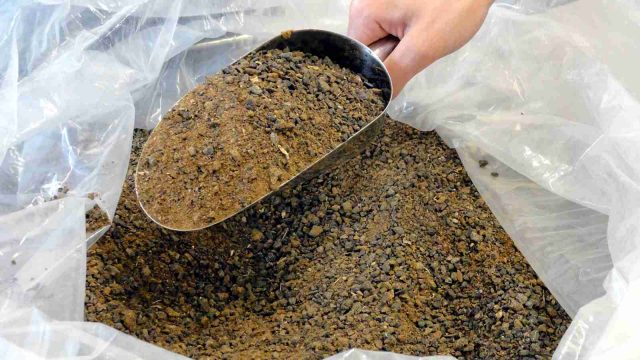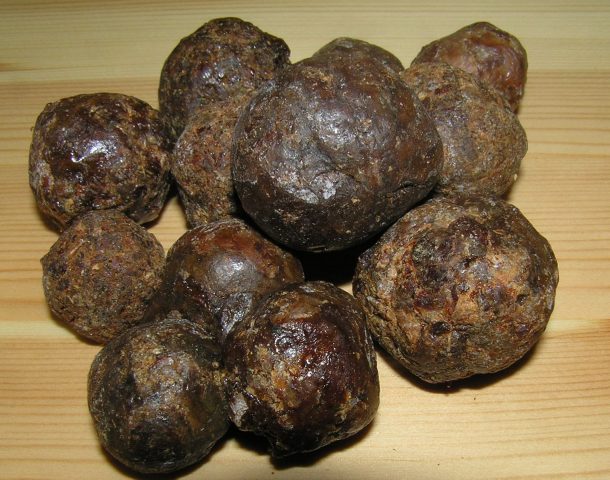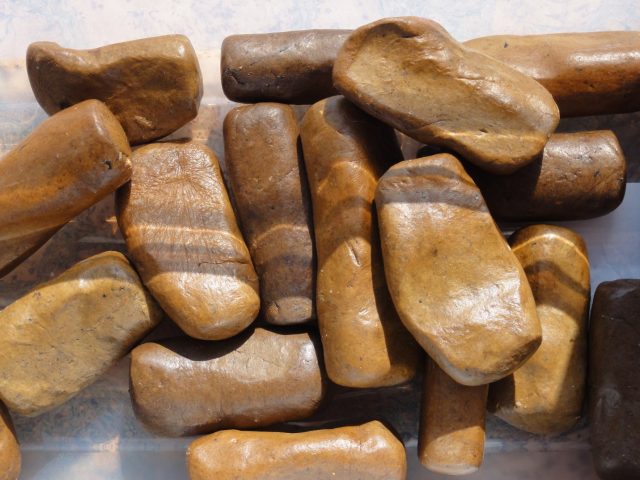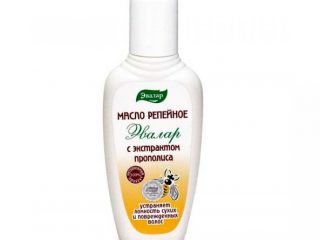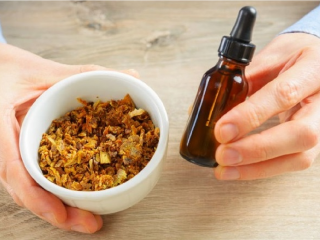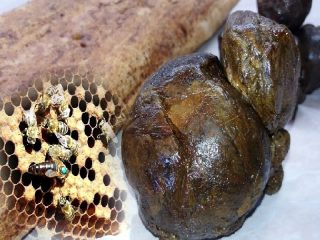Content
Propolis or uza is a bee product. Organic glue is used by bees to seal the hive and honeycombs to maintain a constant temperature inside. Bees collect a special substance from the buds and branches of birch, coniferous trees, chestnuts, and flowers. The glue consists of essential oils and resins that have an antibacterial effect. To ensure that the bee product does not lose its medicinal properties, it is necessary to store propolis at home in compliance with certain rules.
Preparing propolis for storage
Preparatory work for storing the bonds is carried out immediately after collecting bee products from the frames. Bee glue is removed from June to August. First, disassemble the slats and clean the substance from them. Small briquettes are formed from propolis and placed in plastic bags.
The raw materials are separated from foreign fragments, and large fractions are crushed using a centrifuge. Propolis, ready for storage at home, is obtained by purification using the following technology:
- The mass is ground to a powder state.
- Pour into a container, add cold water, stir.
- Leave for several hours to settle.
- The bee product will settle to the bottom of the container; small fragments of wax and foreign substances will remain on the surface of the water.
- The water along with impurities is carefully drained.
- Place the raw materials on a napkin to evaporate the remaining moisture.
- Small balls are formed from purified organic matter for further storage.
Only fresh propolis has healing properties. The quality of bee products is determined by the following criteria:
- the substance looks like wax, viscous;
- color – brown with a dark gray tint. If the composition is dominated by beebread, propolis will be yellow, the quality of such a product is lower;
- the scent of resin, essential oils, and honey predominates;
- the taste is bitter;
How to store propolis
The shelf life of bee propolis depends on compliance with storage rules at home. The substance will not lose its biological properties if a number of recommendations are followed:
- The storage location must be protected from ultraviolet radiation; the container must be dark and not transmit light, since exposure to sunlight destroys some of the active ingredients.
- Optimal air humidity is 65%.
- Organic matter retains its properties at low temperatures, but does not tolerate sudden changes in temperature; a stable value of no higher than +23 is recommended0 C.
- During storage, isolation from chemicals, spices, and household chemicals is required. Ouse absorbs odors and fumes, the healing properties are reduced due to toxic compounds.The quality deteriorates significantly.
Where to store propolis
The main task when storing at home is to ensure that the substance does not lose its active components and structure. It is not recommended to store the bond:
- In kitchen cabinets close to radiators and stoves. Temperature changes during storage of organic glue lead to partial loss of ether compounds.
- In the kitchen table section, located near the sanitary point (garbage chute, sewerage).
- On the shelf next to household chemicals.
- In the freezer. The properties of the substance will be preserved, but some of the adhesive substances will be lost, the structure will become brittle and crumble.
- There is high humidity in the refrigerator, and this factor is unacceptable during storage. Shelf life of propolis in the refrigerator at +40 C will not increase, but there is a risk of temperature changes.
The best option for storing at home is a dark storage room with a constant temperature and normal humidity.
How to store propolis
Properly chosen packaging plays an important role when storing at home. Suitable Material:
- blank album sheets or parchment;
- foil;
- baking paper;
- packaging bags.
Do not use newspapers or magazines for storage; printing ink contains lead.
Organic glue in powder form is placed in a bag or envelope; ceramic containers with a tight lid are also used to store the bulk mass. Most often, propolis is stored in the form of a small ball or stick, individually packaged.The packaged bee product is placed for storage in a cardboard or wooden box or dark plastic container. Close the lid tightly and remove. Bee product in liquid form is stored in a bottle with dark glass. To prevent the penetration of ultraviolet radiation, the surface of the container is wrapped with a dark cloth or painted over.
How long does propolis last?
The highest concentration of essential oils is in ouz, prepared in the fall. Bee glue retains active substances for up to 7 years. After 2 years, the vitamin composition changes, passes into other compounds, bee enzymes cease to be active, but the substance does not lose its anti-inflammatory and antibacterial properties.
The medicinal qualities of alcohol tinctures and ointments also persist for a long time. The exception is water-based products. The shelf life of bee propolis in such compounds is no more than 30 days when stored in the refrigerator.
Shelf life of dry propolis
Raw materials are prepared for medicinal purposes. The powder is used to make products for internal and external use. The shelf life of natural dry propolis at home is about 8 years when stored in hermetically sealed packaging and maintaining the required air humidity. Uza is stored longer than other forms of bee products.
Shelf life of propolis in solid form
The solid form has a plastic sticky texture. The medicine is formed in the form of rounded balls, cakes or short small sticks. Each fragment must be wrapped in packaging. Solid propolis is more susceptible to environmental influences; its shelf life does not exceed six years. This harvesting method is used by beekeepers in their personal apiaries.
Shelf life of propolis tincture with alcohol
Essential oils dissolve best in ethyl alcohol, which is why it is used as the basis for medicinal tinctures. The product turns out to be light brown in color with a red tint. At home, store in a glass or ceramic container with a hermetically sealed lid. The glass must be dark. The shelf life of alcohol tincture is 4 years, provided that the temperature is not higher than +150 C.
How long does propolis last in ointment form?
To prepare the ointment, use Vaseline or fish oil as a basis. Local antibacterial agent. The ointment lasts longer without loss of medicinal qualities if the permissible air humidity is observed (55%). Temperature does not play a role; the main condition is the absence of ultraviolet radiation. The shelf life of home-prepared product is no more than 2 years. If signs of mold appear on the surface, the ointment is unsuitable for use.
Shelf life of propolis oil
A mixture of butter and propolis is used for skin therapy, it is used orally in the treatment of ulcers and erosions of the digestive system, to relieve inflammation in tuberculosis, and added to hot milk for bronchitis. Store the oil in a hermetically sealed container in the refrigerator for no more than 3 months.
How to understand that propolis has gone bad
After the shelf life of propolis has expired, it is not recommended to use it. Bee products at home can deteriorate much earlier than their shelf life for the following reasons:
- poor quality product;
- high indoor humidity;
- temperature changes;
- bright sunlight falling on propolis.
Unsuitability is determined by the composition of the texture and visual signs.The bee product darkens, loses its characteristic odor, the plastic mass becomes brittle and easily kneads into a powder. The substance has lost its medicinal value and is thrown away.
Conclusion
It is necessary to store propolis at home in compliance with certain standards, then the bee product will not lose its medicinal composition for a long time. Uza has anti-inflammatory, antibactericidal properties, the active substances included in the composition are involved in the process of hematopoiesis. Used in the form of ointments, alcohol tinctures, oils. Each dosage form has different shelf life.
